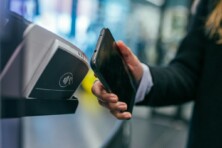
Jill Williams
Content Writer
As more people turn to online payments, a range of new options have appeared in recent times. With US e-commerce sales growing by close to 15% in 2019, according to a Digital Commerce 360 study, there is a greater demand than ever before for payment methods that meet varying needs and lifestyles.
This has led to new options that provide interesting variations on traditional payment methods, to cater to our changing lifestyles and financial needs.
New e-wallets expand the functions and some take a local approach
The Worldpay Global Payments Report confirmed that 36% of online shoppers around the planet prefer to use an e-wallet, compared with 23% that want to use credit cards and 12% that have a preference for debit cards.
This market is still dominated by big names like PayPal, which had 305 million active accounts at the end of 2019. Their CEO, Dan Schulman, was quoted at the start of 2020 as stating that they aspire to achieve a total of one billion accounts, but the emergence of new rivals could hamper this.
The trend for local e-wallets targeting a single geographical market can be seen with the likes of Zapp. This new wallet is exclusively aimed at the Malaysian market and offers features such as QR code scanning and one-tap bill sharing among friends.
More global aspirations can be seen with the Revolut brand, which aims to widen the services offered by the e-wallet sector. While the company was formed in the UK in 2015, they recently ramped up their service by entering 24 new markets in 2019, following a deal with Visa that led to them hiring 3,500 new staff.
Revolut aims to be a far-reaching type of financial service that combines peer-to-peer transfers with online and land-based payments, as well as cryptocurrency trading and a host of other features. According to the Revolut site, 600,000 new members open a new account every month, showing the demand for a comprehensive wallet service like this.
New Pre-Paid Cards Are Linked to Cryptocurrencies
Pre-paid cards offer a convenient way to pay online, as the user simply loads money onto it and then pays when purchasing goods or services online. It is worth remembering that a Consumer Financial Protection Bureau rule that came into effect in 2019 gives American users of these cards a higher level of protection that is similar to that offered on traditional bank debit cards.
This approach is most widely used by people who don’t have a bank account and in industries where the customer wants to set aside a certain amount of money to spend. For example, the Top Brokers site confirms that a pre-paid MasterCard can be used to fund forex trading accounts with a number of online brokers. These cards are also used in the online casino industry for the same reason. If we look at the Betway Casino, we can see that Paysafecard and ecoPayZ are among the extensive list of accepted payment methods. As Visa and MasterCard are accepted too, customers can also use pre-paid options on these networks.
Among the latest pre-paid cards to be launched are some that allow users to convert their cryptocurrencies to fiat currencies for spending purposes. This provides a crucial link between their digital cash and everyday spending using a convenient card, which is something that has been lacking in the past.
One of the new names in this market is Bitsa. This is aimed at European residents and allows them to top-up a card using Bitcoin Cash. It was launched in 2019 by Spanish Fintech company Bitnovo and it can be used to pay online as well as in physical stores.
Another pre-paid card that is crypto-linked is BitPay. In 2020, this card was released and became the first pre-paid MasterCard for crypto users in the US. It gives holders the chance to convert cryptocurrencies into fiat money and then spend it virtually anywhere in the world.
According to Allied Market Research, the global market for these cards is expected to grow at a CAGR of close to 15% from 2020 through to 2027. The growth already seen in this sector and in cryptocurrencies, together with this projection, should encourage more companies to enter the market.
It seems likely that the range of online payment method continues to grow, as emerging technology and changing customer preferences lead to new and improved options being made available.
SEE ALSO:









